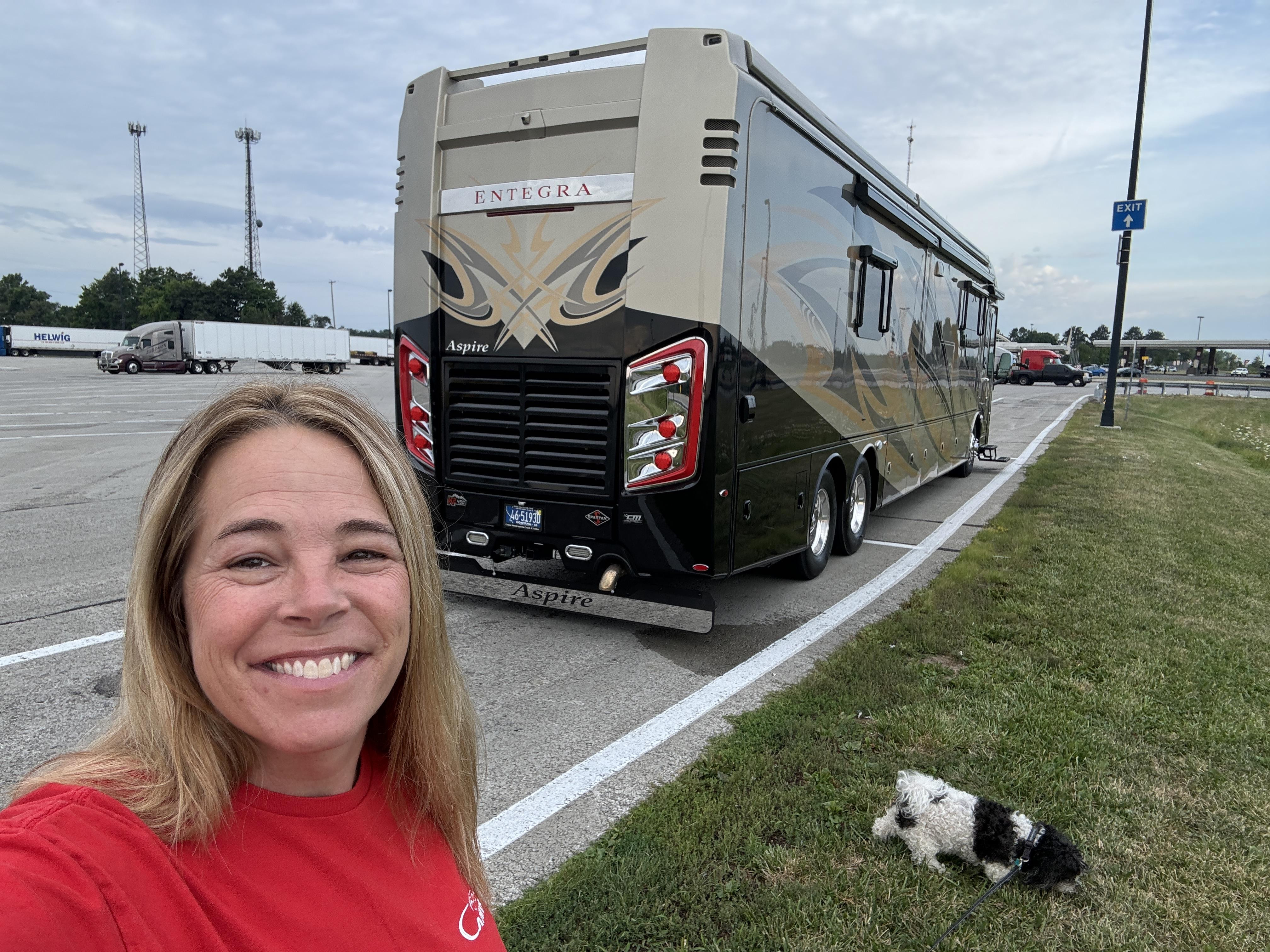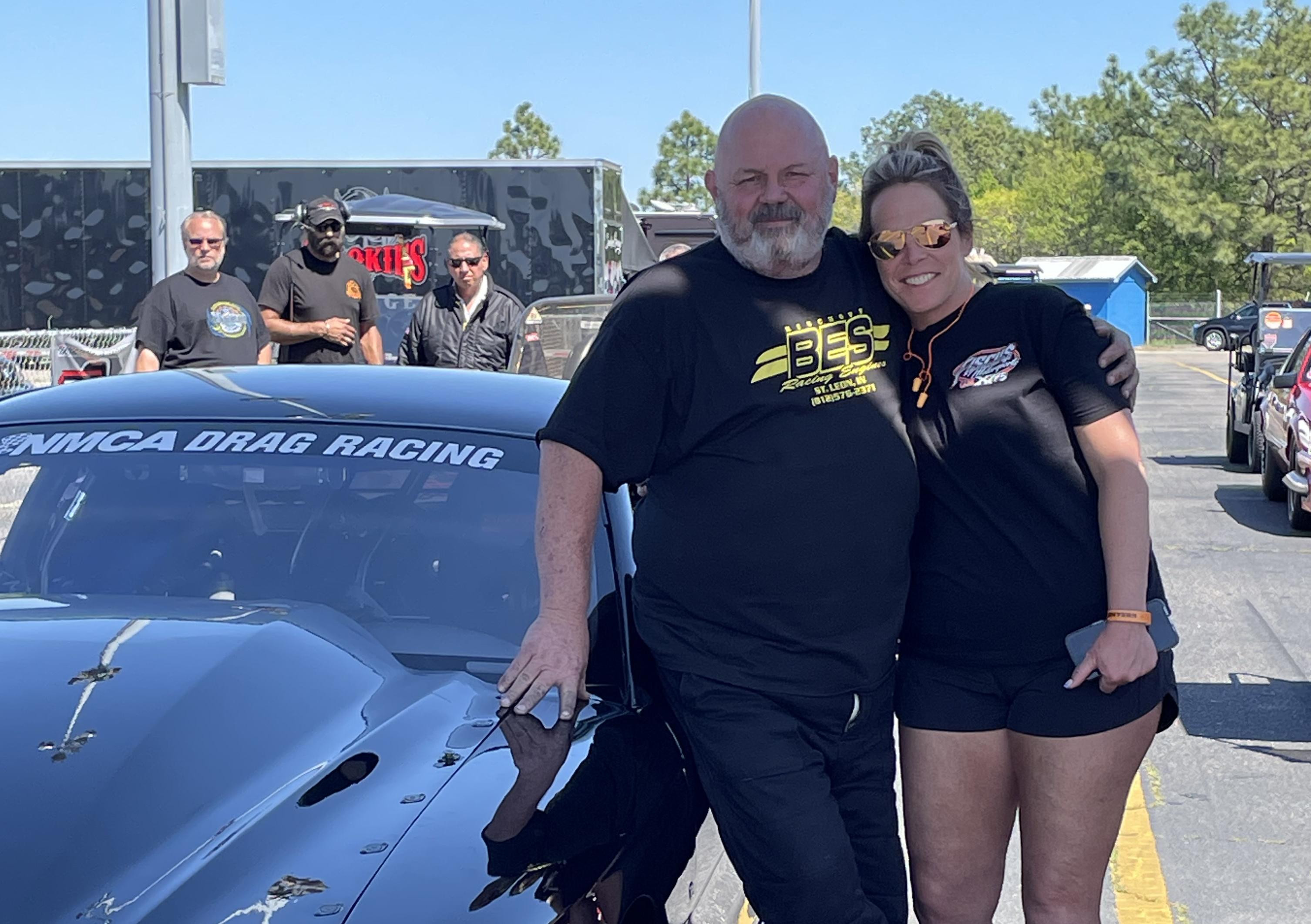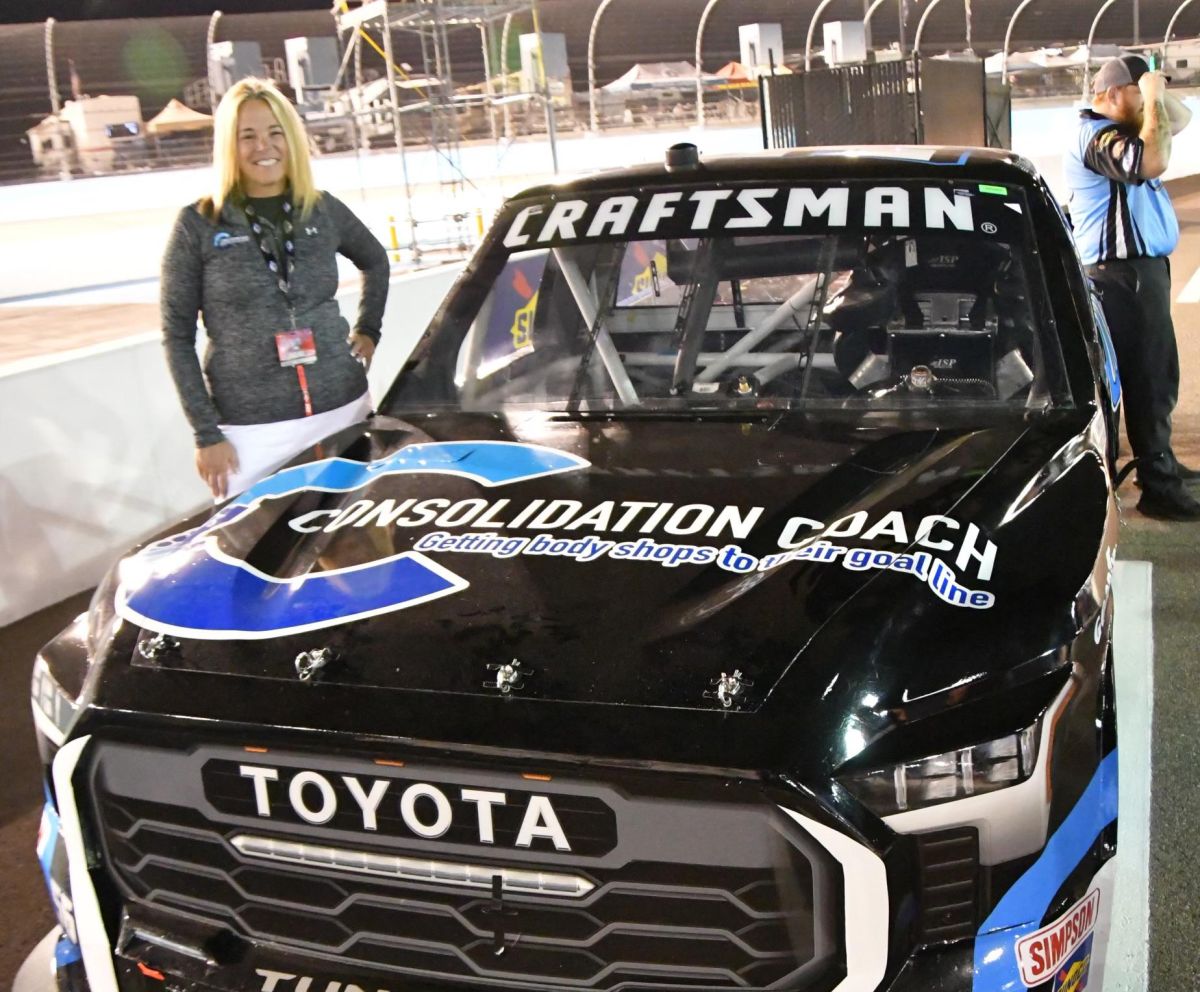Gotta move fast to keep up with Laura Gay, who runs Consolidation Coach, a Naples, FL, consultancy to independent collision repairers who might -- emphasize might -- want to sell.
When Autobody News tracked her down, she was, after a trade show in Texas and a minute in Florida, crossing several state lines, headed for a holiday and a hot rod event in Michigan. Her work has taken Gay to multiple states as well.
She’s busy these days. “I need to be going forward, all the time,” she said.
In eight years, she’s helped sell about 100 auto body shops. Ninety percent of buyers are consolidators.
Drive Time
Gay’s been in body shops two-thirds of her life. Her dad sold motorcycles and used cars, but she’s “a first-generation female in collision repair.”
After high school, she ran a car dealer’s body shop while its manager endured 18 months of motorcycle injury rehab. He returned; she left, targeting insurance -- estimating, arbitration, claims, salvage -- with Progressive and USAA, among others.

She later added marketing to her skill mix, “going direct to insurance agents to promote the shops,” she said.
As her clients’ guide, she helps negotiate a sale, get to contract, assist on legal, and “be their best friend through the whole entire process.”
Also M&A, in which she’s formally certified: “Understanding the value of a shop, of real estate, tax planning, and helping [sellers] see what their lives can look like post-sale.”
Old School
“It’s really about process improvement,” she said -- always getting better -- “and ‘theory of constraints’” -- if a shop improves its weakest link, it’s no longer held back and grows exponentially, as hers did.
“You’re making it work, making it grow, making it flourish,” she said.
This can bear fruit for clients. In one case, she spent a year prepping a shop before it was ready to sell.
Many owners are aging out of the business. “Seventy-five percent are [age] 50 or older; they’re realizing they want a 2.0 career, or a different quality of life,” Gay said. They’ve aged out as technology and trends whizzed by, too.
She gets an ongoing inside skinny -- process improvement again -- talking with hundreds of people a month, accounting for those trade shows and hot rod events.
Clients have run mom-and-pops to sophisticated indies, single-site owners to small MSOs, shops grown fast into an acquisition target to the 103-year-old treasure of a local town.
“I’m not trying to get shop owners to sell,” she said. “I want to help you if you want to sell.”
Some ex-owners now work for her; more have become friends.
Wayback Machine
Gay bought two shops in 2004 and 2011. She co-owned them with her former husband, who ran the mechanical side and later led the production team.
 Boyfriend Terry Wilson and LaurGay, right, and her boyfriend, Terry Wilson, left, at a hot rod event.a Gay and hot rod web
Boyfriend Terry Wilson and LaurGay, right, and her boyfriend, Terry Wilson, left, at a hot rod event.a Gay and hot rod web
“The second shop was easier to grow,” because her people already had the process improvement down.
Buying the second, Gay moved key people from the first site to the second, to replicate company culture.
The two were in different markets: one, 5 miles from the urbanity of Washington, D.C.; the second more "country mouse" but still plenty populated and popular. Each was troubled when she came in.
Within three years she quintupled annual sales at both. By the time she sold the pair in 2015 to Caliber Collision, they were at a combined $9.5 million.
John Beckwith, who had helped Gay with operations -- Mike Anderson was another mentor -- and become a friend, had sold his shops to Caliber, and was working with them. He advised her on the sale process, as she now does for others.
Consolidation boomed, people began calling for counsel and a business born.
Fail Once
One hard and fast rule: make each mistake once.
It’s "fail forward" -- as is everything for Gay -- but most crucial is failing only once per problem. “You don’t want to make the same mistakes again and again.”
Back in the day, for instance, her shops stored the Jiffy Jump in one place, returning it after each use.
Another old-school solution: leave the keys of a car on the windshield wiper, as the vehicle wends its way through repairs in a jammed-up shop lot.
“It’s a piece of sanity,” she said. You don’t have to wonder who’s got it, or where.
Small wins like that add up. The principle applies to her current work.
She learned the hard way the worst way to buy a shop -- hint: stock purchase that includes debt -- and knows the need to own the dirt below the business.
“Everything I’ve learned has been from immersion -- or falling down,” she said.
Once.















Paul Hughes